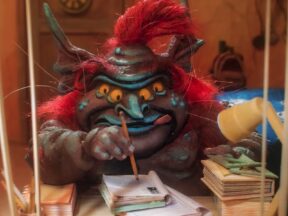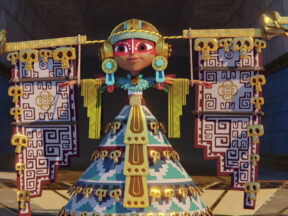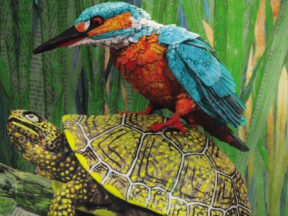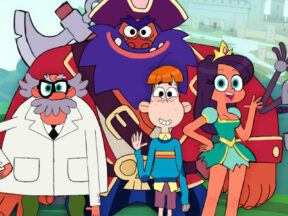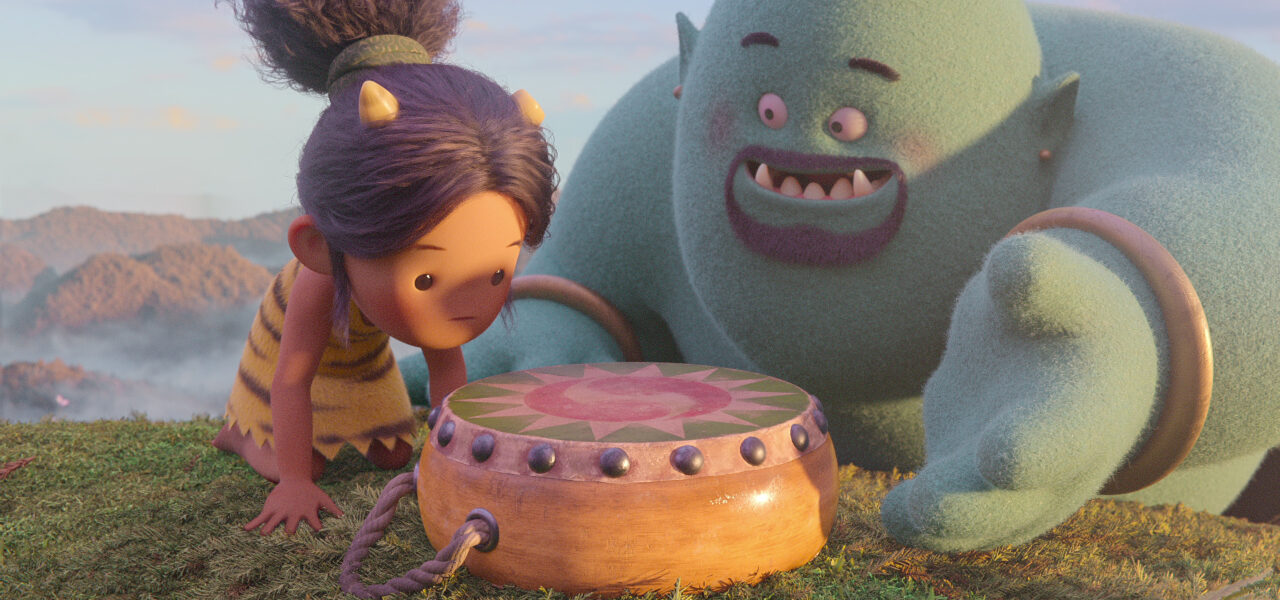
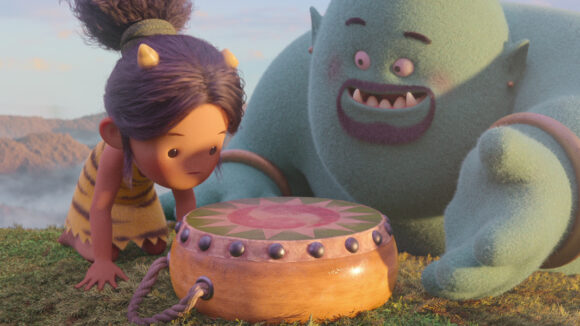
Series Craft: Music As A Tool For Storytelling In Tonko House’s ‘Oni: Thunder God’s Tale’
Tonko House founder Daisuke “Dice” Tsutsumi likes to do things his own way when directing, and that includes the unorthodox way in which he utilizes composers on his productions.
Matteo Roberts and Zach Johnston have been scoring Tsutsumi’s films and series for the better part of a decade, and their work can be heard on Tonko House’s Oscar-nominated short The Dam Keeper and the studio’s Annecy Cristal-winning tv series series Pig: The Dam Keeper Poems.
Roberts is a classically trained musician and Johnston studied film. Their overlapping skill sets have allowed them to transition from performing in the touring pop band Phox in the 2010s to composing music for series and films today.
Oni: Thunder God’s Tale will hit Netflix this Friday, October 21, the same day that the series’ score will be made available to stream on Spotify. Ahead of the premieres, Cartoon Brew asked the creative trio to explain their unique and longstanding work relationship.
Here are Tsutsumi, Roberts, and Johnston in their own words:
A Unique Arrangement

Tsutsumi: Matteo [Roberts] and Zach [Johnston] have always done the music for anything from Tonko House. The way we work together is unique. I consider these guys as a part of my story team and their music as a tool for storytelling. They use music to tell a story much the same way that a storyboard artist would use their drawings. I describe certain story moments or character emotions, and they have the difficult job of creating something with only that early theme or concept. The work they did for Oni was so essential to the story and to the animation performance. The characters’ motion is all guided by the music.
Roberts: On Oni, we got involved during pre-production, on the pilot, and stayed involved pretty much right up to the greenlight and through production. We worked with lots of people at the studio, but from a purely creative perspective we always had a direct line to Dice. We didn’t have any music supervisors or producers in the middle, it was pretty much just us.
Johnston: We communicated directly with Dice every week, or every other week at least, for two years straight. Every time he had an update, he would come right to us. There were some weeks where we’d talk every single day. Although we wrote the music, Dice deserves a lot of credit too. He was always down in the trenches with us when we were arranging something and he was able to push us beyond what we thought we’re capable of. It really feels like the three of us make the music together, even if Mateo and I are the composers.
The Importance of In-Person Work
Tsutsumi: Throughout production on Oni, partly because of the pandemic and partly because of geography, we worked remotely. However, we were able to share several important in-person sessions. The guys came up to Berkeley, California, from L.A. and stayed for several days. Working in the same space together, I could see them making the music and it was just magical. It was also no different than when I’m writing or when the artists in the studio are storyboarding. The frustration and the stresses are the same. Plus it’s just not easy to make something good. But after some tough moments on this journey, I’m so proud of what these guys came up with.
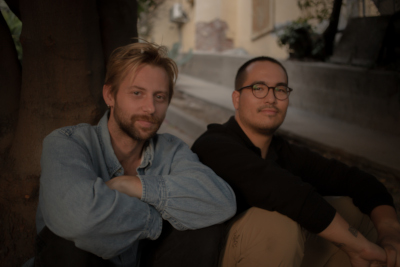
Johnston: This was definitely the hardest thing we’ve ever done in our lives, but we’re so grateful for it. The Berkeley sessions are some of my favorite memories from production because we put in 14–15-hour days of Oni nonstop, and what we ended up creating together was unbelievable. The time went by faster and faster and suddenly, we got to the end and were working on the final episode. We got through it in record time, partially because we had to since we had limited time together in person, but also because we’d established the themes by that time and knew how the story worked. I love this process of filmmaking, and I wonder what it must be like for those who come in and just score something at the end.
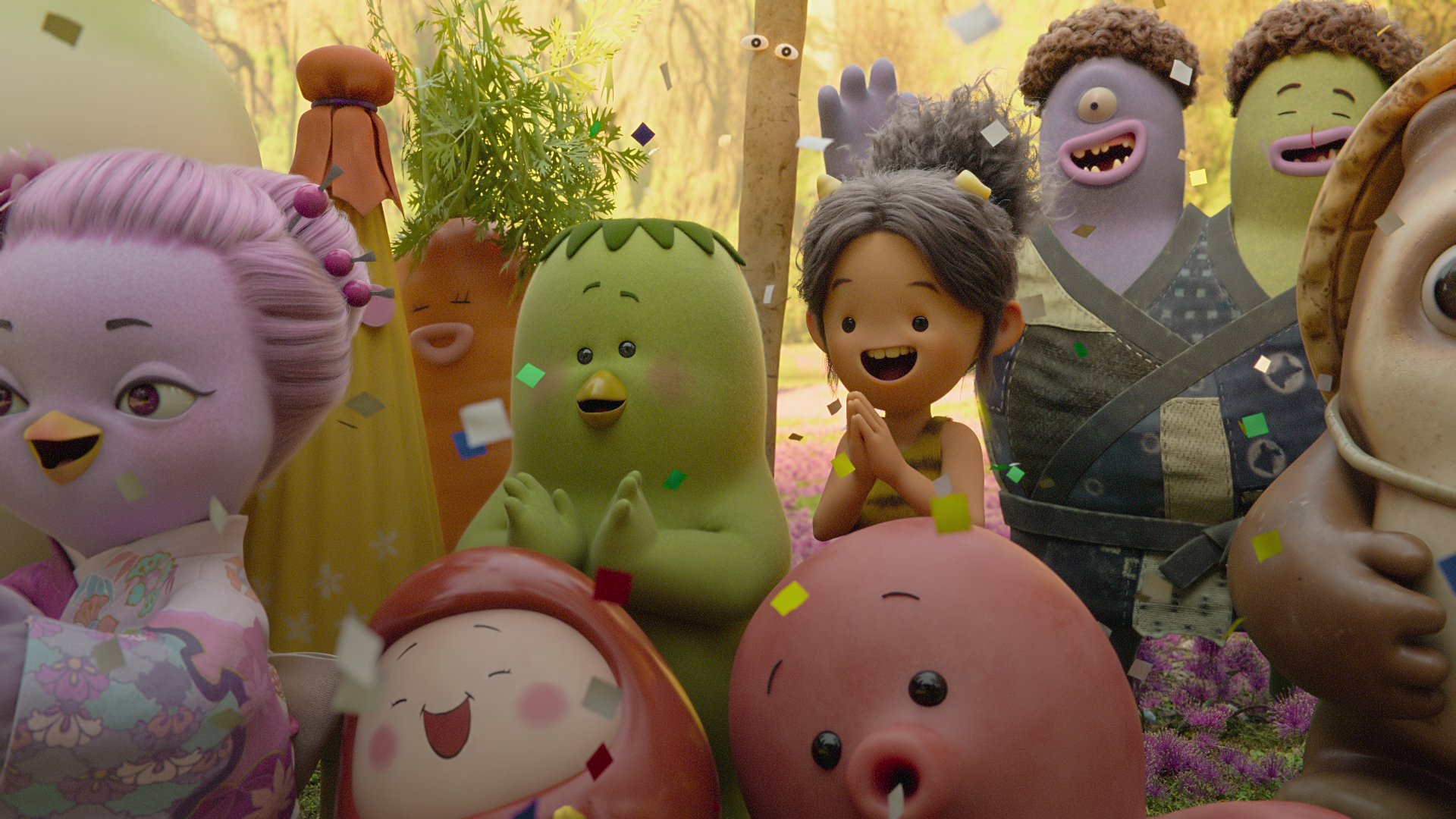
Communication
Tsutsumi: Communication was really important for us, because I knew what I wanted musically but I’m not a musician. I couldn’t go to them and say, “I think this note should be a B flat” or anything like that. So, we had to develop a way to communicate that didn’t use those technical instructions.
Johnston: We communicated purely emotionally and talked about characters and their intentions. There was also always the question of point of view. Should the music reflect one character’s point of view, or several? Or should it be the forest’s point of view? And how much does the audience know? We don’t want to give too much away with the music. All three of us agreed that we don’t like simple background music and we don’t like music that only reinforces what’s happening on screen. So, we never talked about anything technical, it was always emotional.
Japanese Culture
Roberts: We did a lot of research, watched a lot of tutorials on taiko drumming and did some catching up on Japanese scales. A lot of the direct references and info points were things that Zach and I had been fans of for a long time. And of course, Dice gave us guidance when we needed it. Then when we brought in the taiko musicians and flute players, they helped elevate it to the next level. But in terms of references and style, we didn’t overcook it too much. We tried to keep it authentic to ourselves while being mindful of those Japanese influences. Our intuition got us pretty close to what we wanted most of the time, and then it was about finessing and fixing things from there.
Johnston: In our initial conversations, we talked about incorporating elements of traditional Japanese music. With our first demos, we tried to make something literal, but Dice told us, “No, no, make it yours but incorporate the spirit of the Japanese music.” And that was a relief, because [doing it the other way] would be hard to do and strange in a lot of ways. Matteo and I have been fans of Japanese music for years, especially festival and traditional folk music. But being a fan and then incorporating that into the score in a meaningful and a sincere way was a huge process. There was a lot of trial and error, but once we landed on our main songs – which continued to unfold throughout the process – we developed our shared language together.
Tsutsumi: We worked with some of the top taiko drummers in Japan. I was so nervous when we recorded because these guys were traditionally trained and must have had all sorts of rules. To play Matteo and Zach’s score, I didn’t know if that would be against the traditional rules or something like that. But when they got the music, the drummers told me, “Oh my god, these guys know how to score taiko. It’s great.” A lot of Japanese people worked on this film too, including myself, and we all felt so nostalgic hearing the score of Oni. That’s the biggest compliment I can give these guys. They didn’t grow up or live in Japan, so to be able to do that was pretty incredible.
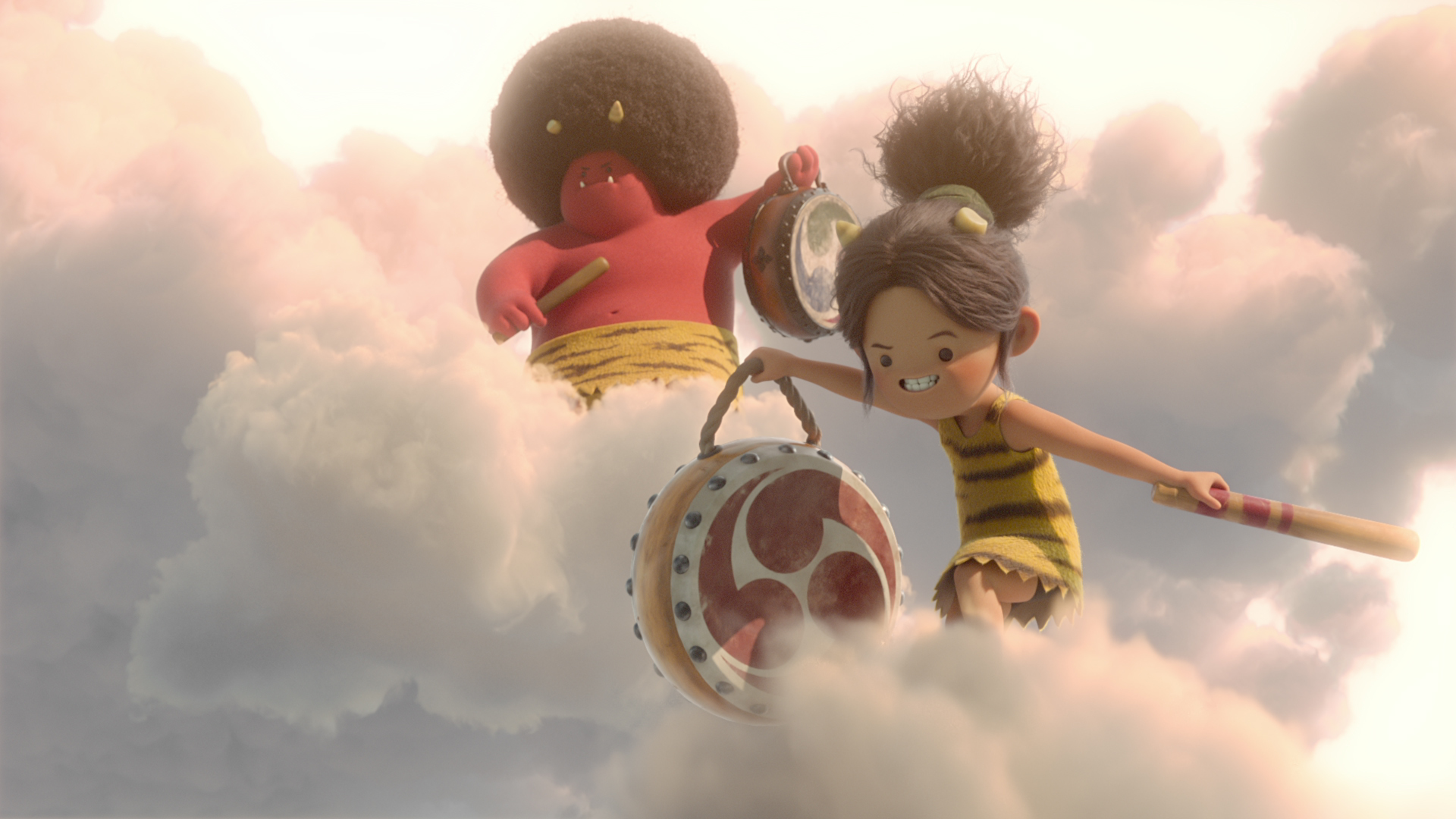
Advice For Beginners
Johnston: Work with your friends. A lot of newcomers have their sights set on the stars, which is great. But with Dice we have an overlap and a chemistry in vision and aesthetic that goes back 10 years. There is an understanding that allows us to make art in a meaningful way. Working with people with whom you share a chemistry and allowing yourself to grow is the best way to create art collectively. A genuine friendship and connection will result in genuine art, and people will notice that. It doesn’t matter if the film is small, but it matters that it’s important to you.
Roberts: It’s always evident when projects are thrown together formulaically or with a more commercial, monochromatic mindset. When you can make something organic, you have to take those opportunities because that kind of art stays in people’s hearts. I also feel like you can sharpen your skills more when working with someone you trust. You challenge each other more and can get the best from one another more than with a cold, business-like collaboration.
Tsutsumi: I always give the same advice to people who want to become concept artists, because that’s what I did before directing. People often focus too much on the technical side of things. Technique we finesse throughout our careers; that comes with just doing the work more. But what’s important, whether you’re a visual artist or a musician working in film and tv, you should study film as much as possible because the language, the way we communicate, is as filmmakers. I communicate the same way with them that I do with my story artists and visual development artists. At the end of the day we’re making a film together, so anyone who is getting into the industry should study film and become a filmmaker first.

